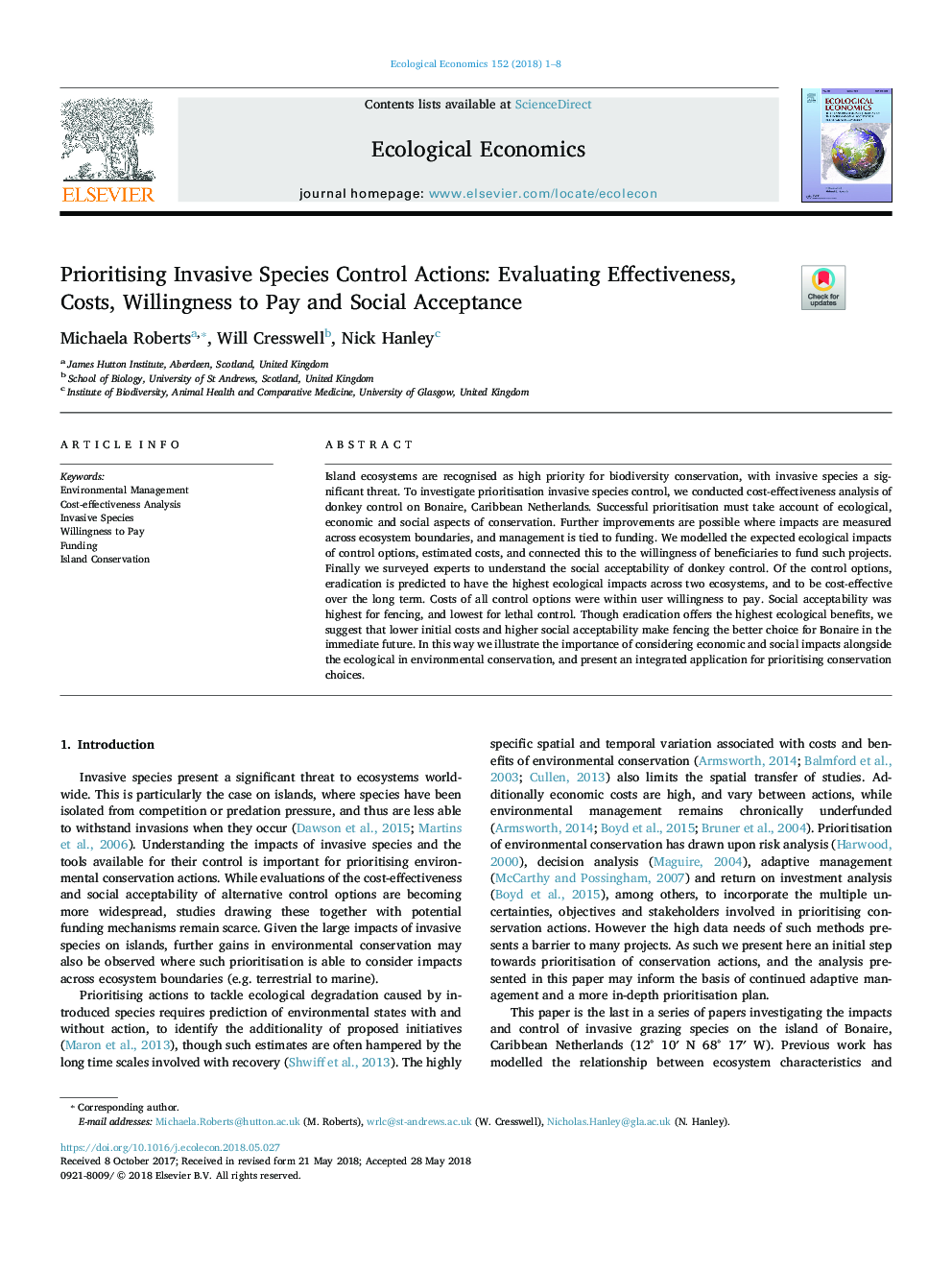| Article ID | Journal | Published Year | Pages | File Type |
|---|---|---|---|---|
| 7343735 | Ecological Economics | 2018 | 8 Pages |
Abstract
Island ecosystems are recognised as high priority for biodiversity conservation, with invasive species a significant threat. To investigate prioritisation invasive species control, we conducted cost-effectiveness analysis of donkey control on Bonaire, Caribbean Netherlands. Successful prioritisation must take account of ecological, economic and social aspects of conservation. Further improvements are possible where impacts are measured across ecosystem boundaries, and management is tied to funding. We modelled the expected ecological impacts of control options, estimated costs, and connected this to the willingness of beneficiaries to fund such projects. Finally we surveyed experts to understand the social acceptability of donkey control. Of the control options, eradication is predicted to have the highest ecological impacts across two ecosystems, and to be cost-effective over the long term. Costs of all control options were within user willingness to pay. Social acceptability was highest for fencing, and lowest for lethal control. Though eradication offers the highest ecological benefits, we suggest that lower initial costs and higher social acceptability make fencing the better choice for Bonaire in the immediate future. In this way we illustrate the importance of considering economic and social impacts alongside the ecological in environmental conservation, and present an integrated application for prioritising conservation choices.
Keywords
Related Topics
Life Sciences
Agricultural and Biological Sciences
Ecology, Evolution, Behavior and Systematics
Authors
Michaela Roberts, Will Cresswell, Nick Hanley,
